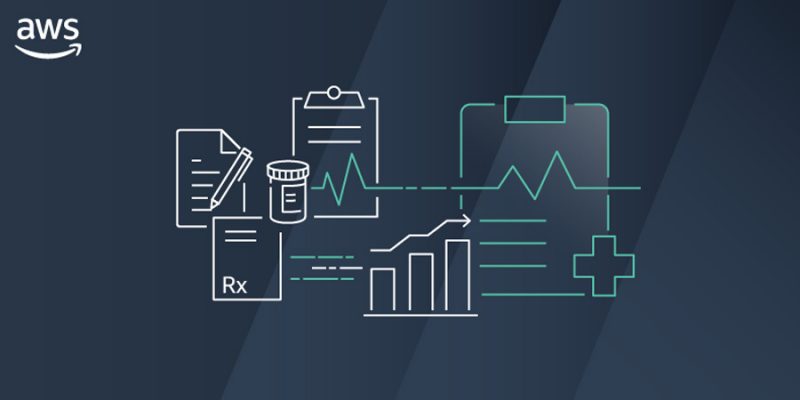
AWS provides a cutting-edge cloud platform with full support to help you streamline and make use of all your data.
With the introduction of private firms into the healthcare industry, the focus has shifted to digitizing health records. The majority of the data, from medical documents to insurance payments and health history, is unstructured and unstructured. AWS offers a cloud infrastructure with cutting-edge features and 360º support to help you simplify and make the most of your data.
Because of its great potential to revolutionize sectors and contribute to the progress of human health, big data analysis has now become a prominent topic. Medical data, insurance claims, test results, and other information sources are all used in the healthcare sector. Because the majority of this data is unprocessed and disorganized, it must be streamlined by developing an interface that enables private persons to use it to deliver better healthcare.
AWS for healthcare
AWS is one such technology that supports cloud technology to help healthcare decision-makers make better value-based, data-driven decisions. It focuses on finding new and inventive ways to get new solutions into the hands of health providers to increase efficiency, minimize burnout, and enhance care quality. Their solutions are based on a contemporary healthcare data platform that allows for faster insight generation, improved interactive search and processing efficiency, and cheaper costs.
AWS, in collaboration with YourStory, sponsored a webinar titled Building a contemporary healthcare information platform on AWS. To assist healthcare professionals with strategies and approaches for streamlining healthcare data and constructing an advanced platform using AWS.
Creating a personalization data platform
HealthKart is a D2C sports nutrition provider with over 3 million active consumers. “As an omnichannel D2C brand, we have had to take great care of customization for our clients,” Ajay Tiwari, CTO, HealthKart remarked when asked how the firm used AWS’ platform. A lot of our business hinges on how we collect big data and analyze it in real-time, from authentic analytics to pushing appropriate offers.” HealthKart chose Amazon Pinpoint as their data platform since it was the most cost-effective when compared to other options. “As payment is solely dependent on the events consumed, there’s no minimum monthly payment obligation.” Furthermore, the first 100 million activities are free,” Ajay explained.
“AWS also gave us with an SDK to assist us with functionality such as recording session count, page visits, and the number of unique users,” he said. Ajay walked us through the AWS Pinpoint services architecture in depth.
A storage platform with a low price
MFine is a firm that provides mobile health consultations. The MFine app allows you to seek medical advice from any place or scenario, which is ideal for individuals with busy schedules. The platform is growing at a 20% month-over-month rate and employs actual data analytics to connect out to a large number of clients. “The platform helps us draw insights from data, and it eliminates dependency on the data team,” Shafeeq remarked while discussing the necessity for a data platform. It allows a spectrum of users to self-serve. It also enabled us to create a real-time data warehouse.”
Mfine built a low-cost digital storage platform using big data concepts. The analytics dashboards and day-to-day business activities were built using AWS services like Amazon S3, Ecommerce Athena, and presto. Throughout the workshop, AWS specialists were on hand to answer questions about leveraging their services to construct a contemporary data platform. Interactions, learning, and crucial insights were possible between healthcare professionals and data enthusiasts.
Healthcare Data Lake
KousikRajendran, AISPL’s Solutions Architect, Healthcare and Life Sciences Specialist, spoke extensively on the development of a healthcare data platform. “Healthcare data platforms are constructed by processed items using standardized formats like FHIR®, bespoke formats, and safely stored into centralized data lakes like Amazon S3,” Kousik explains how well a simple data lake may appear. “Healthcare organizations must adopt standard formats like FHIR®, which is suggested by the Ayushman Bharat Digital Mission (ABDM),” he continued.
“Using AWS’ Lake House design, our clients may link their Data Lake, Data Warehouse, and other data services.” The Lake House method uses Amazon S3 as the core store for a Scalable Data Lake. It also uses Relational Database Services, such as Amazon RDS, and purpose-built data services, such as Amazon DynamoDB. Lake House allows for seamless data migration, uniform governance, and performance while minimizing costs.”



















